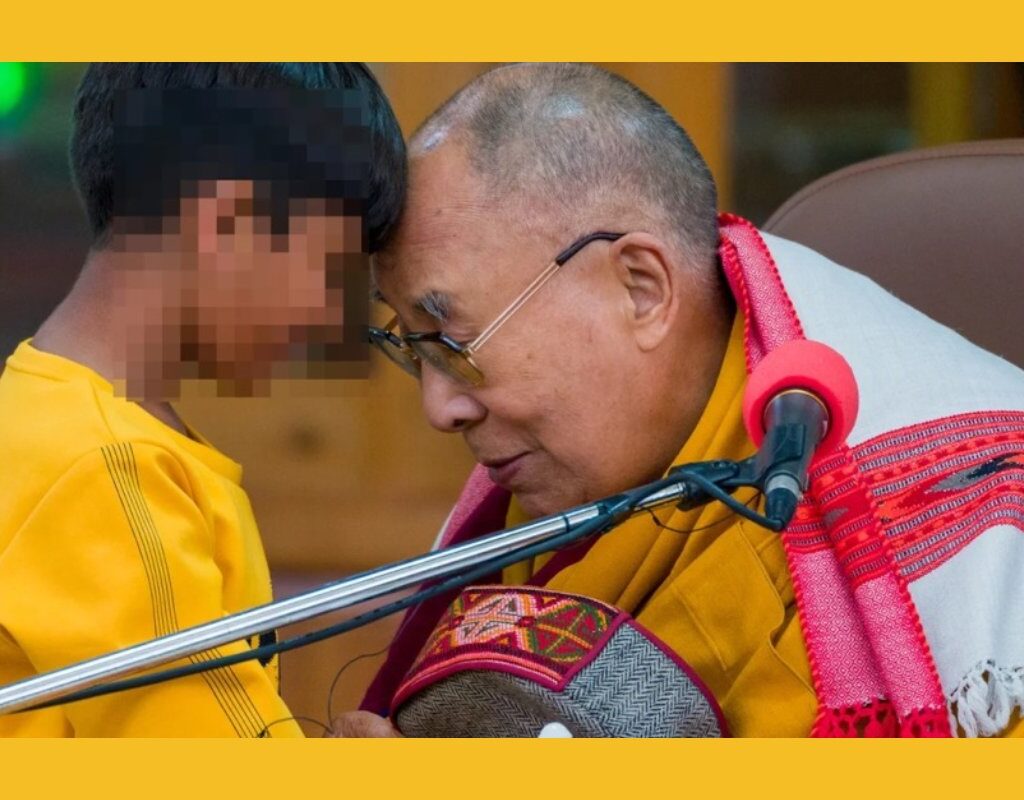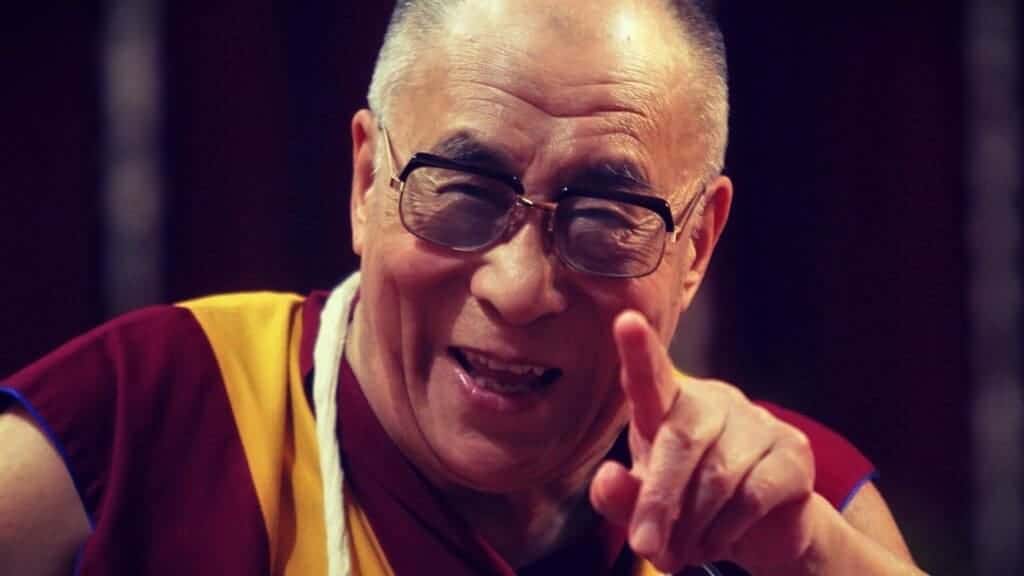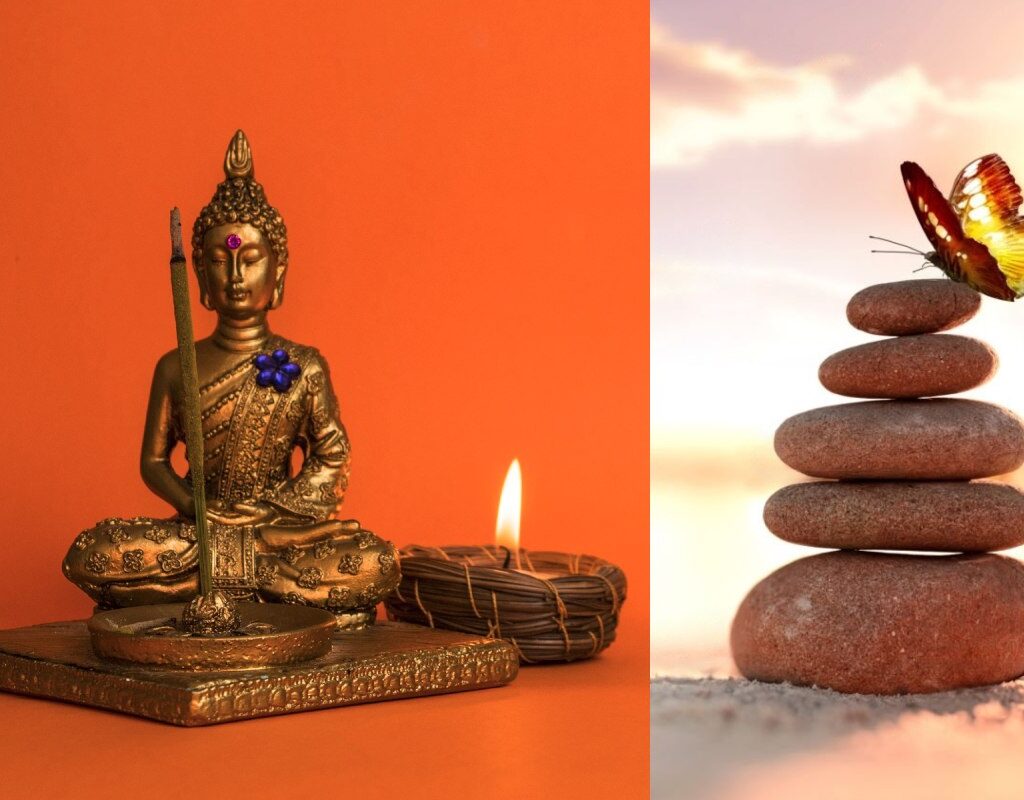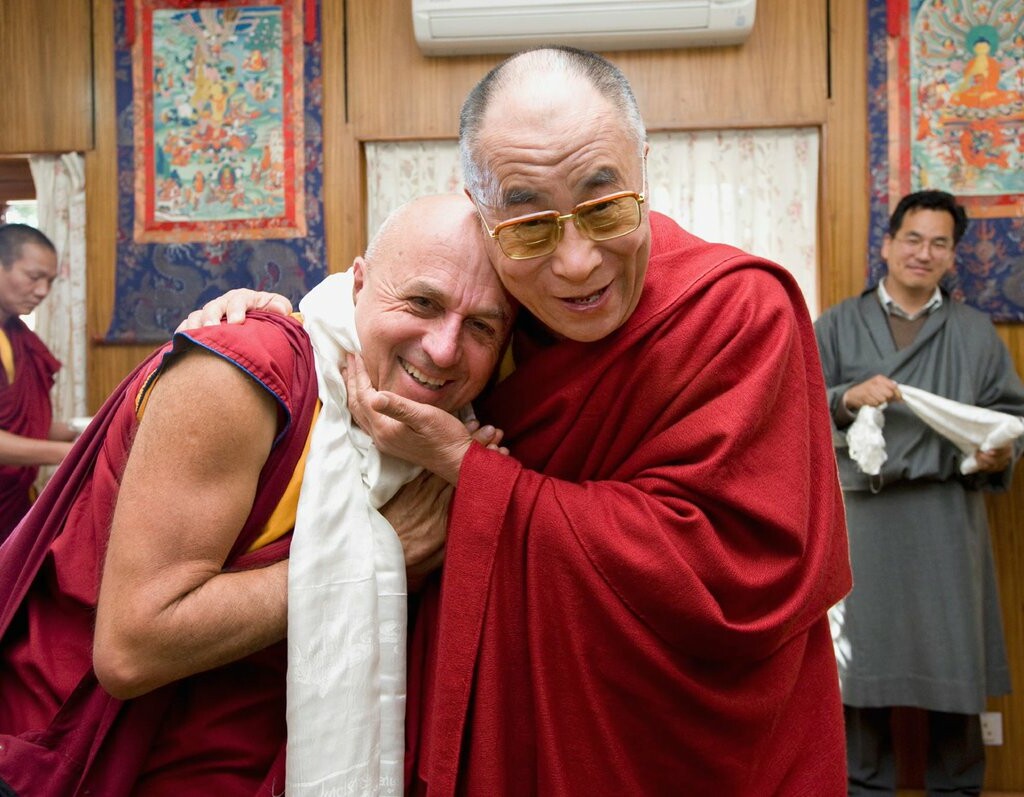The recent video of the Dalai Lama kissing a child has generated controversy and criticism on social media and in public opinion. In Western culture, physical contact between a religious leader and a child is often a cause for concern due to the numerous cases of child sexual abuse that have come to light in recent years.
Controversy on social media over the video of the Dalai Lama kissing a child
In Spain, for example, there have been 953 cases of pedophilia and 1,802 victims of the Catholic Church since El País newspaper opened a reporting mailbox in 2018.
Buddhism, on the other hand, has not had such a tarnished reputation in this regard. That is why the video in which the Dalai Lama kisses a child on the lips and then asks him to suck his tongue has generated outrage and criticism towards the Buddhist leader.
The encounter occurred at the end of February in the Dalai Lama’s temple in Dharamshala, where about 100 young students recently graduated from the M3M Foundation in India attended.
Although his holiness later apologized to the child and his family and publicly expressed regret for any pain his words and actions may have caused, the public wonders if the Dalai Lama has faced any allegations of sexual abuse of minors, or if there is any cultural explanation that could justify an act that is considered repugnant in the West.
The Dalai Lama and Accusations of sexual abuse: Realities and Myths
It is important to note that in Western culture, physical contact between adults and children, especially intimate acts such as kissing on the lips or sucking tongues, is considered inappropriate and can be interpreted as an act of sexual abuse.
However, in other cultures, norms and customs may be different, and physical contact may have different connotations. In any case, it is necessary that the actions of religious leaders and authority figures be rigorously and sensitively evaluated, taking into account the rights and protection of minors at all times.
Although there is no evidence that the Dalai Lama has engaged in inappropriate sexual behavior with minors in the available archives on the internet, there have been press articles that have pointed out cases of rape complaints made by Buddhist monks towards children that have been ignored.
The cultural significance of sticking out the tongue in Tibetan tradition: A deep analysis
Regarding Tenzin Gyatso’s action of sticking out his tongue to the child and asking him to suck it, an explanation could be found in traditional Tibetan culture.
A report by the Institute of East Asian Studies at UC Berkeley has indicated that “a cruel Tibetan king of the ninth century had a black tongue, so people stick their tongues out to show they are not like him (and that they are not his reincarnation).”
Folklorist Norine Dressner also explained in a Los Angeles Times article in 1997 why children stuck their tongues out to the character played by Brad Pitt in the movie “Seven Years in Tibet.”
Because Buddhists believe in reincarnation, there is a fear that the evil King Lang Darma may be reborn in the future. Therefore, for centuries there has been a tradition of greeting by showing the tongue as a way of confirming that one is not guilty of doing harm, following these Tibetan cultural beliefs.
Today, Tibetans briefly use the gesture of sticking out their tongue as a greeting when they meet. However, they don’t do it in the same way or for as long as shown in the movie. Neither do they do it as a group. According to experts on the subject, besides being a greeting, sticking out the tongue is also used as a sign of agreement and respect, the specialist said.
However, there is a big difference between sticking out the tongue as a sign of respect and sucking it. Especially in India, the country where the most sacred figure of Tibetan Buddhism has resided since 1959, when China annexed Tibet.
Kissing in Hindu Culture: Taboos and Controversies with the Dalai Lama
In Hindu culture, kissing represents the cosmic union of opposites, masculine and feminine. However, kissing in public remains an absolute taboo. Heterosexual young people are only allowed to kiss after marriage, and for this reason, hotels often require a marriage certificate to accommodate couples of the opposite sex.
Taking into account this cultural context, it is possible to understand the confusion and shyness of the Indian child who was pressured to touch and suck the tongue in a public act with the Buddhist spiritual leader.
The Dalai Lama, spiritual and political leader of Tibet, has been involved in several controversies over the years
The controversial side of Dalai Lama: Sexist Comments, criticisms of Leaders, and Opinions on Refugees
In 2019, during an interview with the iconic BBC, the Dalai Lama made a sexist comment by stating that if a woman succeeded him, she should be “more attractive” than him. Although the comment was considered offensive by many Britons, the Dalai Lama was smiling and making faces during the conversation, giving the impression that he was joking.
In the same BBC interview, the Dalai Lama also criticized then-US President Donald Trump, saying he lacked moral principles. However, the Dalai Lama has also faced criticism for his comments on refugees.
Although he himself is an exile, at a seminar in Sweden, he opined that Europe would not become a Muslim or African country and that it was better to leave Europe to the Europeans. Additionally, at the same conference, he asserted that Europe was only “morally responsible” for helping refugees if their lives were really in danger.
The Dalai Lama is the 14th leader to hold the title, and Tibetan Buddhists believe he is a reincarnation of his predecessors. Leaders are considered manifestations of the Bodhisattva, or Compassion Buddha, enlightened beings who choose to reincarnate to serve others.
Although the Dalai Lama is respected by many followers and admirers around the world, his comments and actions have generated controversies on occasion, especially when he has been involved in political and social issues.
It is important to consider his role as a spiritual and political leader and to approach his words and actions with a journalistic and professional focus, maintaining impartiality and objectivity when reporting on his statements and behaviors.




